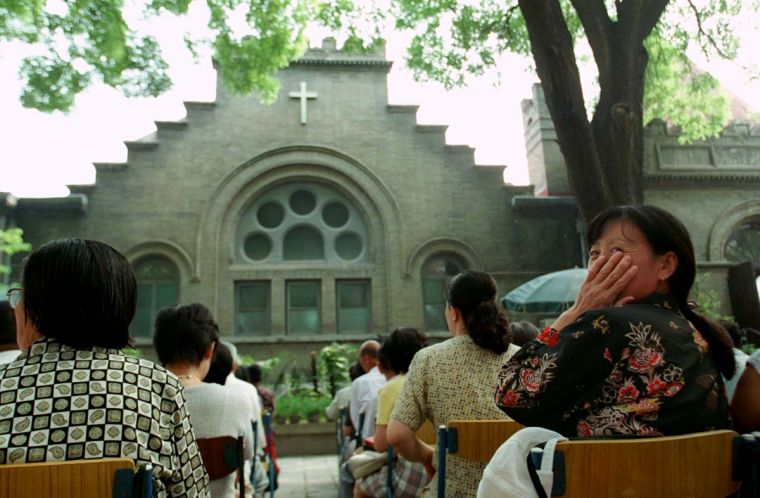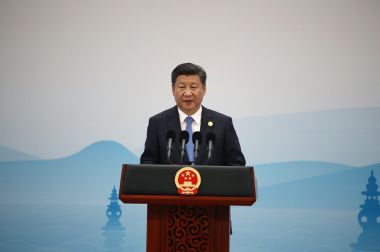Is Religious Freedom In China Really About To Get Worse?

Religious freedom in China could be about to dramatically worsen, campaigners have warned.
Tomorrow, the consultation closes for the Chinese public to respond to 26 new laws that would further restrict religious freedom in the country.
The new rules have been drafted by the State Administration for Religious Affairs (SARA) and will – according to an expert who spoke to ChinaSource – "in effect leave no space for the house or unregistered Church in China, and will significantly curtail many of the activities of the TSPM [Three-Self-Patriotic Movement, the state-controlled Protestant Church] as well".
According to Christianity Today, the new regulations will mean, among other restrictions, that no religious materials may be published without approval by SARA, no one may study theology without official permission, and no venues may be used for religious services unless a permit is granted.
China already has in place a number of draconian laws on religion that systematically repress the liberty of its citizens, and the proposed new laws could see the climate for Christians and other minorities significantly worsen.
"Studying the newly revised Regulations on Religious Affairs, it is evident that the Party wants to take charge of religion," one pastor told persecution watchdog China Aid.
"The government wants to control everything, even the smallest aspects. One characteristic of this draft is the empowerment of local government bodies all the way down to the communities. This revision will further reduce the possibility of loosening religious control in China. It is becoming impossible."
Another pastor of a US-based Chinese church, Gao Baosheng, warned that the legal revisions "will bring upon a religious winter so harsh that we must seek guidance from God".
"We can see that the government is clenching tighter and tighter on Christianity, Catholicism, Buddhism and Islam," he said. "The laws are becoming more and more specific and detailed when suppressing Christian family [house] churches, Catholicism, and all other underground religions. The revisions provide a powerful legal base for future suppression. The conditions of religious freedom in China are worsened for them."
It's interesting that SARA has opened up the consultation process for a public response. For some, it may evoke memories of the 1956 Hundred Flowers Campaign, when the ruling Chinese Community Party (CPC), then under Chairman Mao Zedong, encouraged citizens to express openly their opinions of the regime.
However, when people began criticising the Party and even Mao himself, a crackdown ensued, and up to 550,000 people who had dared question Communist authority were branded 'rightists' and sent to harsh labour camps. Mao later said the campaign had been a set up to "entice the snakes out of the grass".
The Chairman took a particularly hard line on religion. During the Cultural Revolution that ended with his death in 1976, many religious leaders were imprisoned or sent to labour camps, while places of worship were routinely destroyed. He is believed to have declared: "Religion is poison".
The end of the consultation comes as the US Congressional-Executive Commission on China (CECC) on Thursday released its 2016 report. Significantly, the document noted comparisons made between current President Xi Jinping and Mao.

"Xi has overseen a deterioration in human-rights and rule of law conditions in China marked by greater consolidation of his own power – leading some analysts to draw comparisons to Mao Zedong – through forced ideological conformity and the systematic persecution of human rights lawyers and defenders," the report said.
Under Xi's leadership, more human rights activists have been arrested in the past two years than in the previous two decades combined. China's Hui and Uighur Muslims have seen an unprecedented crackdown, with the imposition of severe restrictions regarding dress code and fasting during Ramadan. Up to 1,500 churches have been demolished or had their crosses removed, and numerous pastors have been arrested and detained.
The CPC is committed to maintaining absolute power, and religion is perceived as a threat. In 2014, it announced plans to nationalise Christian theology, and only allows state-recognised religious institutions to operate. Even those religious groups recognised by the government are encouraged to remember "that their allegiance is to the country, and the Party, first".
However, the Christian community in China is thriving. When Mao came to power in 1949, there were just one million Christians. Experts believe that in less than two decades, China will have the largest population in the world.
Brent Fulton, president of ChinaSource, told Christianity Today that should all go ahead, the new restrictions could come into law as early as the beginning of 2017.
"The threat at this point is real," he said. "But the process is by no means straightforward, and it's not clear where all this will end up."
Fulton noted that it's possible the central Chinese government will reign SARA in if the public reaction to the laws is overtly negative. Only the National People's Congress has the power to enact legislation, so SARA cannot take the matter into its own hands.
Pastor Gao, however, told China Aid that "seeking public opinion" on the new laws is merely a formality. "The Revised Draft of Regulations on Religious Affairs is Xi Jinping's attempt to further manage and suppress religions by taking advantage of the laws," he said. "The government is imposing more control on major religions."
China's Christians have long faced severe curtailments. If they believe it's getting worse, the international community would be foolish to ignore it.











